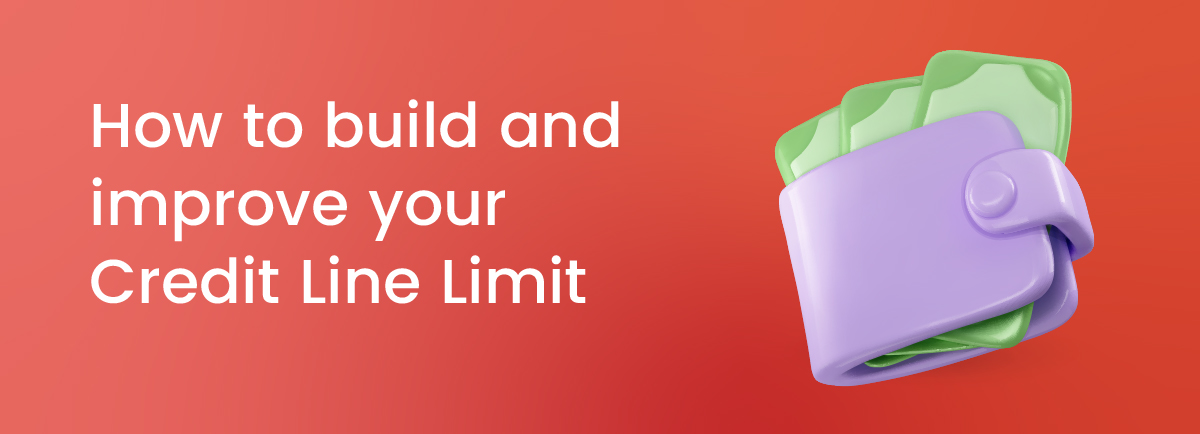
How to Build and Improve Your Credit Line Limit
02 May 2024 | By INDIE
The credit limit is the maximum amount of credit a bank extends to your credit line or card. Banks or lenders generally set credit limits based on your income and employment status. Credit limits can affect your credit scores and the approval of your loan application in the future. Therefore, credit limits are a deciding factor.
How do Credit Limits Work?
A credit line limit is the maximum amount your bank will allow you to spend through a revolving credit line or particular credit card. After checking your credit score, loan repayment history, and personal income, the bank will decide on the personal credit line limits. Financial institutions generally increase the credit limit of borrowers they think aren’t risky. You can use a credit line or card to spend on purchases up to the set credit limit. You may pay a fine or penalty in addition to your regular payment if you exceed the limit. Credit limits apply to both unsecured and secured credits. If you back your credit with collateral, the bank will evaluate the value of the collateral and may increase the credit limit accordingly.
How can Credit Limits Affect Credit Score?
In the future, lenders will use your credit score to decide whether to approve or reject your loan application. Furthermore, the bank will also decide interest rates based on your credit score. Your credit utilisation ratio, i.e. your outstanding debt, is a deciding factor for calculating your score. The lower your outstanding debt, the better. Therefore, it is prudent to borrow well beneath the credit limit. The value of your outstanding debt ideally should be below 30%. The bank will evaluate your credit score and set your credit line limit. If you feel that your personal credit line limit is low, you could take some steps to increase it.
Also Read: How does a Line of Credit help in building your credit score?
Steps to Increase Your Credit Line Limit?
Here are some of the tips on how to increase credit:
· Contact your Bank:
Logging into your credit card account and choosing the option of increasing credit is the easiest step to obtain a jump on your credit limit. Usually, banks require you to complete a form with updated information like your monthly expenditures and income. Make sure to define the value of the additional credit you seek.
· Try Increasing the limit:
Your bank may consider increasing the credit limit of your existing card if you request them to do so. However, the ultimate decision of your credit limit depends on different factors, like your credit history, personal income, and credit score. If you own multiple credit cards, select the one card for which you would want to increase your credit limit.
· Apply for a New Card:
You could also apply for a new credit card because they have a higher credit limit. Your credit is disbursed over different cards when you apply for a new credit card. This step can help you retain a high credit score if you pay bills on time.
· Use Balance Transfer:
The bank charges an interest rate of 0% for approximately a year by transferring your outstanding amount from one card to another. The waiver of interest rate charges for at least a year could help you save a substantial sum.
Follow these tips above for increasing your credit limit. However, please note that the lenders (in this scenario, financial institutions) have the final say in increasing or lowering your credit limit. If you don’t exceed the credit limit and pay your credit card bills on time, the bank may consider increasing your credit limit. Conversely, if you regularly max out your credit card purchases and don’t pay your bills on time, the bank will lower your credit limit.
Disclaimer: The information provided in this article is generic and for informational purposes only. It is not a substitute for specific advice in your circumstances. Hence, you are advised to consult your financial advisor before making any financial decision. IndusInd Bank Limited (IBL) does not influence the views of the author in any way. IBL and the author shall not be responsible for any direct/indirect loss or liability incurred by the reader for making any financial decisions based on the contents and information.




